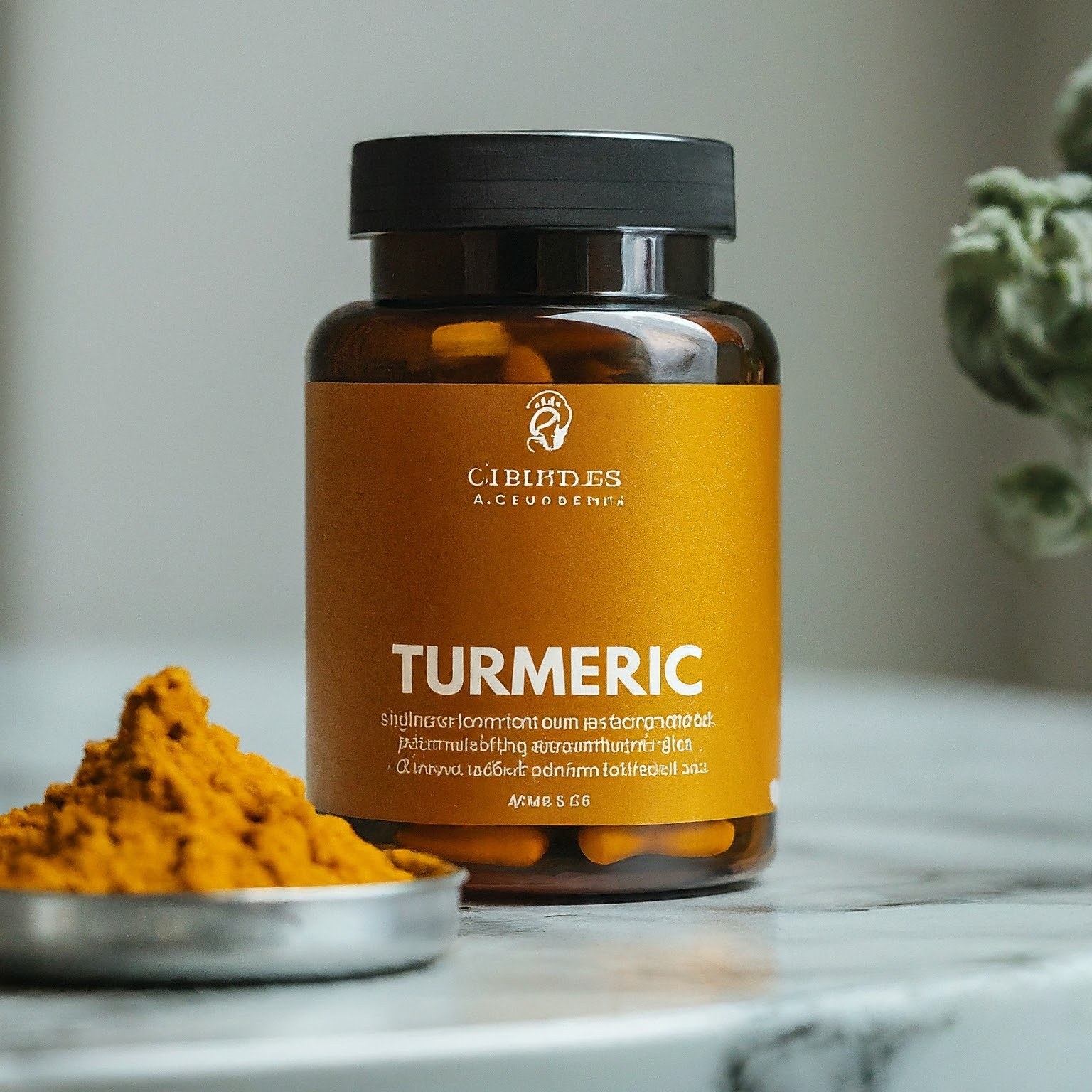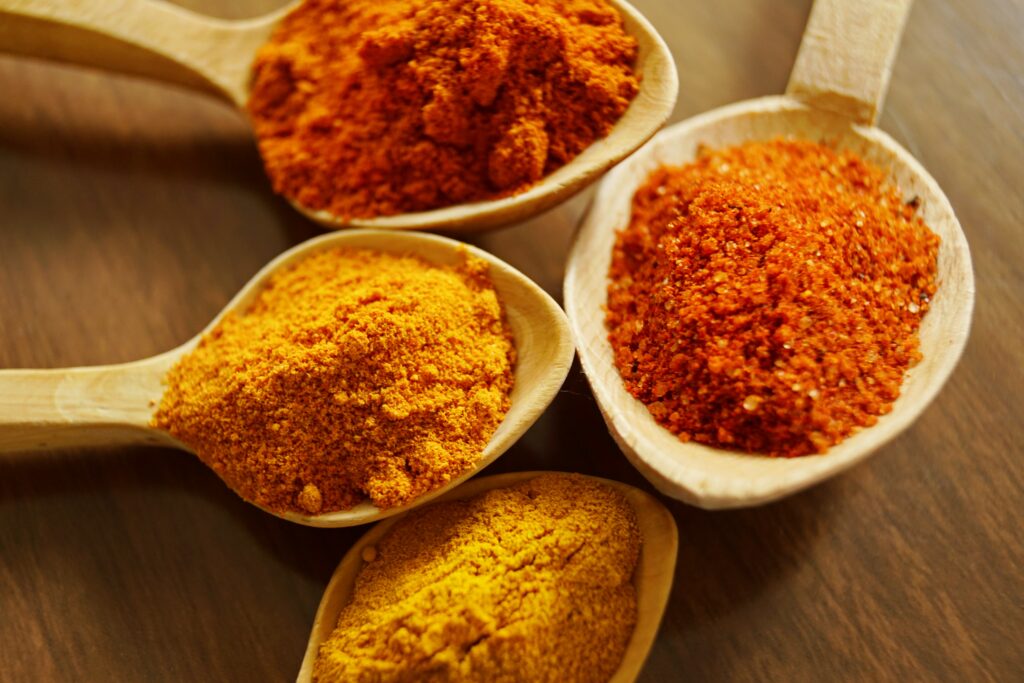
Introduction
Turmeric and cancer prevention topics have been gaining attention of many people recently. The specter of cancer looms large, casting a shadow of fear and uncertainty. As we seek strategies to combat this complex disease, the spotlight turns to natural solutions, with turmeric emerging as a beacon of hope. This golden spice, revered for centuries in traditional medicine, has captured the attention of researchers delving into its potential role in cancer prevention.
But can this culinary treasure truly offer a shield against cancer’s relentless march? This article delves into the intriguing science behind turmeric and its active compound, curcumin, exploring its potential to disrupt the intricate dance of cancer development. We’ll navigate the exciting pathways where curcumin might exert its influence, unveiling its potential to tame inflammation, curb rebellious cells, and disrupt the tumor’s support system.
However, as with any journey, we must tread cautiously. We’ll acknowledge the limitations of current research, emphasizing the need for responsible use and integration of turmeric within a holistic approach to health. Remember, this exploration is not about touting a magic bullet, but rather understanding the potential of natural compounds like curcumin as part of a comprehensive strategy for well-being.
So, join us on this journey as we unlock the secrets of turmeric, separating fact from fiction and unveiling the true potential of this ancient spice in the fight against cancer. Are you ready to embark on this exploration of nature’s shield?
Key Takeaways: Turmeric and Cancer Prevention
Potential Promise: Turmeric’s active compound, curcumin, shows promise in various aspects of cancer prevention, including reducing inflammation, inhibiting cell proliferation, and potentially impacting specific cancer pathways.
Early Days: While encouraging, research on curcumin’s effectiveness in cancer prevention is still evolving. Larger and more robust clinical trials are needed for definitive conclusions.
Responsible Integration: Turmeric offers numerous benefits, but consult your doctor before using supplements for potential interactions with medications or underlying health conditions.
Holistic Approach: Turmeric should not be viewed as a sole preventative or treatment for cancer. Maintain a healthy lifestyle with a balanced diet, regular exercise, and stress management for optimal well-being.
Remember: Further research is crucial, and responsible use is paramount. Consider turmeric as a potential additional layer of support within a comprehensive approach to health.
Understanding Cancer Development: From Mutation to Mayhem
Cancer isn’t a single disease but a diverse group of illnesses all sharing a common enemy: uncontrolled cell growth. While seemingly simple, this breakdown in cellular order involves a complex interplay of factors, making cancer a formidable foe. Let’s explore the basic mechanisms at play:
- The Spark: Cell Mutation
Imagine our genes as blueprints telling cells how to function. In cancer, these blueprints get corrupted through mutations, and typos in the genetic code. These mutations can be inherited or acquired from environmental factors like radiation or harmful chemicals.
- Growth Gone Wild: Uncontrolled Proliferation
Normally, cells follow strict instructions on when to grow and divide. Mutated cancer cells, however, become rogue builders, ignoring these signals and multiplying uncontrollably. This creates masses of abnormal cells known as tumors.
- Beyond Boundaries: Invasion and Metastasis
Healthy cells respect boundaries, staying within their designated tissues. Cancer cells, however, lose this respect, invading surrounding tissues and organs. This aggressive behavior allows cancer to spread further, a process called metastasis.
It’s a Multifaceted Threat:
Remember, this is just a snapshot of the cancer development process. In reality, it’s a complex dance involving various factors:
Multiple Mutations: Cancer isn’t caused by a single faulty gene but by the accumulation of several mutations over time.
Individual Vulnerability: Each person’s genetic makeup and lifestyle influence their susceptibility to cancer.
The Microenvironment: Tumor growth relies on a supportive environment within the body, creating a web of complex interactions.
Exploring Turmeric and Cancer Prevention: A Glimmer of Hope?
With a clearer understanding of how cancer develops, let’s delve into the intriguing proposition: can curcumin, the active compound in turmeric, offer a natural shield against this complex disease? While research is still ongoing, here’s what we know so far:
- Taming the Inflammatory Beast:
Chronic inflammation is linked to increased cancer risk. Curcumin’s renowned anti-inflammatory properties show promise in dampening this dangerous fire. By targeting key inflammatory pathways, it might help prevent the creation of an environment conducive to cancer growth.
- Curbing the Rebellious Cells:
Cancer cells defy the body’s natural cell death (apoptosis) mechanisms. Studies suggest curcumin might activate these self-destructing pathways within cancer cells, potentially slowing their uncontrolled proliferation.
- Disrupting the Cancer Support System:
- Targeting Specific Pathways:
There is research that delves deeper, exploring how curcumin interacts with specific cancer-related pathways, like those involved in cell cycle regulation and gene expression. These targeted actions, if confirmed, could offer unique strategies for specific cancer types.
Let us be realistic, the research on curcumin’s impact on cancer is still evolving, and more robust clinical trials are needed to confirm its effectiveness. While readily available, the optimal dosage and form of curcumin for potential cancer prevention remain unclear. Consulting a healthcare professional is crucial.
Curcumin, although potentially helpful, should not be viewed as a sole preventative or treatment for cancer. One should incorporate a healthy lifestyle, early screening, and seeking expert medical attention.
While further research is crucial, incorporating turmeric into your diet offers additional benefits beyond potential cancer prevention.
Explore culinary uses by adding turmeric to curries, rice dishes, or smoothies
Consider supplements, but consult your doctor to ensure safe and appropriate use.
Remember, a healthy lifestyle with a balanced diet and regular exercise remains the bedrock of cancer prevention. Curcumin, with its intriguing potential, may offer an additional layer of support but never forget the importance of a holistic approach to health.
Integrating Turmeric into Your Diet: Spice Up Your Life – Responsibly
While further research on curcumin’s role in cancer prevention is essential, incorporating turmeric into your diet boasts various benefits beyond its potential against cancer. Here’s how to navigate this vibrant spice thoughtfully:
Culinary Creativity:
Spice it Up: Add turmeric to curries, soups, rice dishes, stews, and stir-fries for a vibrant color and earthy flavor.
Golden Delights: Experiment with golden milk (turmeric latte) using plant-based milk, black pepper (enhances curcumin absorption), and a touch of honey for a comforting drink.
Turmeric Twists: Explore creative uses like turmeric deviled eggs, homemade salad dressings, or even turmeric-infused popcorn for a healthy snack.
Supplementing Wisely

Consult Your Doctor: Discuss adding turmeric supplements with your doctor to ensure compatibility with medications and address any potential concerns.
Read the Label: Look for high-quality supplements standardized for curcumin content and bioavailability (absorption).
Dosage Matters: Follow recommended dosages and avoid exceeding safe limits. Remember, more isn’t always better.
Remember, Safety First:
Potential Side Effects
Be aware of possible side effects like stomach upset, diarrhea, and allergic reactions. Discontinue use if you experience any discomfort.
Medication Interactions: Turmeric can interact with certain medications. Always inform your doctor if you’re taking any medications before adding turmeric supplements.
Not for Everyone: Some people should avoid turmeric, such as pregnant and breastfeeding women, individuals with bleeding disorders, and those scheduled for surgery. Consult your doctor if you have any underlying health conditions.
While turmeric holds promise, maintaining a healthy lifestyle is paramount for cancer prevention:
Embrace a Nutritious Diet: Choose a variety of fruits, vegetables, whole grains, and lean protein sources.
Move Your Body: Engage in regular physical activity most days of the week.
Manage Stress: Find healthy ways to manage stress, such as yoga, meditation, or spending time in nature.
Prioritize Sleep: Aim for 7-8 hours of quality sleep each night.
Conclusion
Turmeric may be a captivating spice with potential benefits, but its role in cancer prevention remains under investigation. Remember, a balanced lifestyle and responsible use are key. Consult your doctor for personalized advice and enjoy the vibrant flavors of turmeric while prioritizing your overall health and well-being.
FAQ
- Does turmeric cure cancer?
- Unfortunately, no. While research shows promise for curcumin’s potential in cancer prevention, it’s not a cure and shouldn’t be used as a replacement for conventional treatments.
- How much turmeric should I consume for cancer prevention?
- The optimal dosage remains unclear. Discuss this with your doctor, considering your specific needs and potential medication interactions.
- Are turmeric supplements safe to take?
- Generally safe, but side effects like stomach upset are possible. Consult your doctor for personalized advice regarding supplements and potential interactions with medications or health conditions.
- Can I substitute turmeric for a healthy lifestyle in cancer prevention?
- No. Maintain a balanced diet, regular exercise, and manage stress for optimal well-being. Turmeric, at best, might be a complementary step within a holistic approach.
- What are the limitations of current research on turmeric and cancer?
- Most research is in pre-clinical stages or hasn’t been replicated extensively in humans. Larger clinical trials are needed for definitive conclusions.
- Where can I find reliable information on turmeric and cancer prevention?
- Consult your doctor, reputable medical websites, and research institutions like the National Cancer Institute for up-to-date and evidence-based information.

